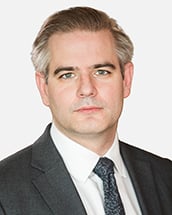In brief
On 13 July 2022, the European General Court endorsed the European Commission’s ability to exert jurisdiction over transactions that do not trigger either EU or national merger control thresholds by virtue of the so-called Article 22 referral mechanism (Case T-227/21). With this ruling, the General Court has effectively validated a hybrid ex ante/ex post EU merger control regime. It is hoped that any future Article 22 intervention will remain exceptional.
Contents
Key Pronouncements from the Court
The Court carried out a literal, contextual, teleological and historical interpretation of Article 22(1) of the EU Merger Regulation that permits (1) one or more Member States to request the Commission to examine any concentration that (2) does not meet the EU notification thresholds, but that (3) affects trade between Member States, and (4) threatens to significantly affect competition within the Member State(s) making the request.
The Court concluded that these four cumulative conditions significantly restrict the Commission’s freedom of action in alignment with the general EU law principles of subsidiarity and proportionality. The referral mechanism is intended to remedy deficiencies in a system based principally on rigid turnover thresholds. As such, it is a “corrective mechanism” and represents a subsidiary power of the Commission, conferring on it the flexibility to intervene in cases that are likely to significantly impede effective competition in the internal market.
The fact that national merger thresholds may deprive national competition authorities of the power to examine such deals under their domestic law does not mean that Member States have lost or declined their general competence for all concentrations that do not trigger the EU filing thresholds.
Although in places the Court’s reasoning is rather tortuous, its conclusions are not unexpected. The novelty is in its pronouncements on the procedural aspects of the referral process.
Any Article 22 referral request must be made within 15 working days of the date on which the merger was notified to the Member State(s) in question or, if no notification is required because national thresholds are not triggered, within 15 working days of the transaction otherwise being “made known” to the Member State(s) concerned.
The Court concludes that “made known” implies the active transmission of information allowing the Member States to assess whether the four cumulative conditions of Article 22 are satisfied. Press releases and media coverage of the deal are not sufficient triggers – they are extraneous to the EU merger control system and neither the Commission nor the national competition authorities are required to actively seek information on concentrations capable of triggering Article 22. Any other interpretation, says the Court, would risk depriving the referral mechanism of its practical effect.
In the case at hand, the deal was signed and announced on 20 September 2020. In November, the UK competition authority made a preliminary examination and the US FTC issued a second request. The Commission was apparently not informed of these developments prior to receiving a third party complaint about the deal on 7 December. On 19 February 2021, the Commission sent an “invitation letter” to the Member States competition authorities, encouraging them to refer the deal under Article 22 – this letter constitutes the active transmission, the act of “making known”.
On 9 March, the French authority submitted a referral request and the parties were informed in an information letter on 11 March. An additional five Member States sought to join the French request and by decisions of 19 April, the Commission accepted their requests. The Court ruled that these decisions were challengeable acts since they brought an end to the Article 22 referral procedure (which is distinct from the substantive assessment procedure) and affected the legal position of the parties. It did not accept that the information letter was a challengeable act.
The Court criticized the Commission for the lapse of 47 working days from receipt of the complaint on 7 December 2020 until the issuance of the invitation letter on 19 February, and the lapse of 90 working days from the complaint to the adoption of the contested decisions on 19 April. These gaps were not justified by the year-end holidays, nor mitigated by the Commission’s continuous activity throughout the process. Nonetheless, the Court ruled that the infringement of the “reasonable time principle” justifies the annulment of contested decisions only where it constitutes an infringement of the rights of defense. In the present case, there was no such infringement since the parties had had several opportunities to make known their views during the administrative procedure leading to the adoption of the contested decisions.
The parties argued that in unexpectedly conducting a policy U-turn, switching from its prior policy of discouraging Article 22 referrals where national merger regimes did not apply, the Commission infringed the principles of the protection of legitimate expectations and of legal certainty. They also referred to Competition Commissioner Vestager’s public pronouncements that there would be no policy change prior to promised guidelines that the Commission unexpectedly published on 30 March 2021.
These arguments got short shrift. The Court found that the protection of legitimate expectations presupposes that precise, unconditional and consistent assurances originating from authorized, reliable sources have been given to the person concerned by the competition authorities of the European Union. Speeches by Commissioners, and incidental findings of the ICN and OECD are not relevant.
The Court also recognized that the Commission had recently been accepting Member States joining referral requests where they were not competent to examine the deal under their national laws. This fact was not necessarily in the public domain but occurred in Apple/Shazam (2018), Knauf/Armstrong (2019), JnJ/Tachosil (2019), and Mastercard/Nets (2020). So the change in policy in the present case, and as subsequently formalized in the revised non-binding guidelines of 30 March 2021, was well within the Commission’s discretion.
Implications
Illumina has reportedly signaled that it will appeal the General Court’s judgment but the Commission has made clear that it is already reviewing a number of potential candidates for Article 22 review.
As the Commission made clear in its March 2021 guidelines, its focus will remain on large tech and pharma acquisitions of promising start-ups and innovators, as well as companies with access to or impact on competitively valuable assets such as raw materials, IP rights, data or infrastructure, and companies providing key inputs/components for other industries.
The fact that a transaction has already closed does not preclude a Member State from requesting an Article 22 referral. The Commission will generally not consider a referral appropriate where more than six months has passed since closing, or from the moment when material facts about the concentration have been made public in the EU. However, in exceptional situations, such as the magnitude of potential harmful effects, the Commission does not rule out intervention beyond six months.
This latest development is part of a broader trend reflecting political concerns that lax merger control has facilitated rising profits and increased market power that is correlated with an alleged decline in market dynamism. This has led to the adoption of lower intervention thresholds, such as deal value thresholds in Germany and Austria, and the new Turkish law that as of May 2022 catches all deals involving technology companies (broadly defined) where the worldwide revenues of any party exceeds TRY 3 billion (roughly USD 190m). It has also fueled the ongoing debate on “killer acquisitions” and other innovation theories of harm as explored at the mid-June virtual FTC/DOJ workshop on pharmaceutical mergers.
This development also comes at a time when we see, in practice, materially increased Commission scrutiny in deals (with very significant and onerous requests for information and documentation); a lack of willingness to take risks on the part of the Commission in its assessment (with shares in the low to mid 30s being raised as problematical against other factors); and very challenging demands from the Commission on remedy design.
Combined with agency proactive scouring of industry press to identify potentially problematic deals, burgeoning foreign investment controls, and the prospect of a third layer of regulatory clearance if/when the EU foreign subsidies regime enters into force in 2023, the regulatory environment for transactions is becoming significantly more challenging than at any point in the past.





